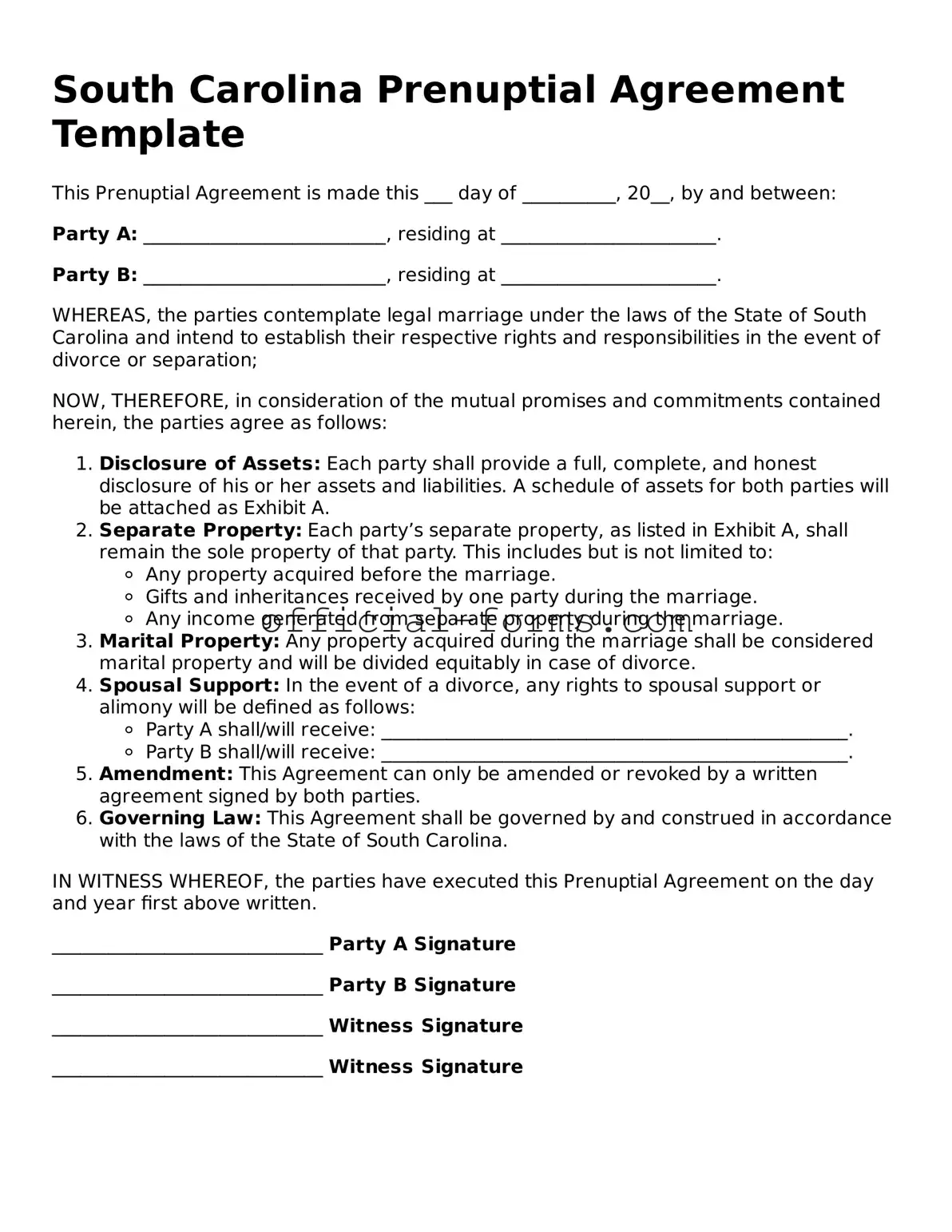Filling out a prenuptial agreement form can be a crucial step for couples looking to protect their assets and clarify their financial responsibilities before marriage. However, many individuals make common mistakes that can undermine the effectiveness of the agreement. Understanding these pitfalls can help ensure that the document serves its intended purpose.
One frequent mistake is failing to disclose all assets and liabilities. Transparency is essential in a prenuptial agreement. If one party omits significant financial information, the validity of the agreement may be challenged in the future. Both partners should take the time to list all their assets, debts, and income sources to create a comprehensive picture of their financial situation.
Another common error involves neglecting to consider future changes. Life circumstances can shift dramatically after marriage, such as career advancements, inheritance, or the birth of children. A prenuptial agreement should include provisions that account for these potential changes. Couples may want to revisit the agreement periodically to ensure it remains relevant.
Some individuals mistakenly rush through the process without adequate discussion or reflection. A prenuptial agreement is not just a legal document; it represents a mutual understanding of financial expectations and responsibilities. Couples should take the time to communicate openly about their financial goals and concerns before finalizing the agreement.
Additionally, not seeking legal advice can be a significant oversight. While it may be tempting to use a generic template or fill out the form independently, consulting with a legal professional can provide valuable insights. An attorney can help tailor the agreement to meet specific needs and ensure compliance with South Carolina laws.
Another mistake often made is failing to properly sign and notarize the document. A prenuptial agreement must be executed correctly to be enforceable. Both parties should sign the agreement in the presence of a notary public. Without proper execution, the agreement may not hold up in court if challenged.
Some couples also overlook the importance of including a dispute resolution clause. Should disagreements arise in the future regarding the interpretation or enforcement of the agreement, having a clearly defined process for resolving disputes can save time and stress. Mediation or arbitration clauses can provide a structured approach to resolving conflicts.
Lastly, ignoring the emotional aspect of a prenuptial agreement can lead to misunderstandings. Many people view these agreements as unromantic or as a lack of trust. It’s essential for couples to approach the conversation with sensitivity and empathy. Addressing concerns and affirming commitment can help strengthen the relationship while navigating the practicalities of a prenuptial agreement.
By avoiding these common mistakes, couples can create a prenuptial agreement that not only protects their interests but also fosters a healthy dialogue about finances and expectations in their marriage.

